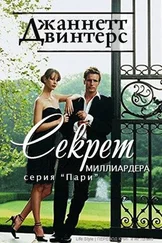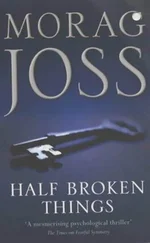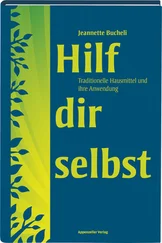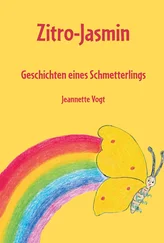“That’s not the way it is at all,” Jim said.
“ ’Course it’s not,” I told him. “Who would pay good money to see an actual smelly cowboy? You go to movies to escape from the way things really are.”
“I guess gangsters complain about gangster movies, too,” he said.
But Jim agreed to be my Gone with the Wind chauffeur, and the night of the premiere, he drove me in the hearse-a little dented after the crash with the Brooklyn broads-into Kingman. When we pulled up to the theater, spectators were milling around on the sidewalk, watching everyone arrive in their finery. Deputy Johnson stood out front in his uniform, directing traffic. Jim got out and opened the hearse door for me, and I stepped onto the red carpet, waving grandly to the crowd-and to Deputy Johnson-as the photographer’s flashbulb popped.
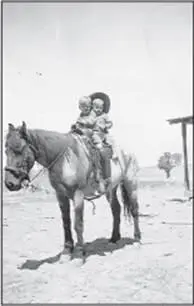
Rosemary and Little Jim on Old Buck
I TOLD ROSEMARY ANDLittle Jim that I didn’t want them making friends with the other schoolkids, because if they did, those kids would expect special treatment from me. Even if they didn’t, the other students might believe they had if they got good grades. “I have to be like Caesar’s wife,” I told Rosemary and Little Jim. “I have to be above suspicion.”
We were also pretty isolated on the ranch, there being no other kids within walking distance, but Rosemary and Little Jim got along fine by themselves. In fact, those two little scamps were each other’s best friend. After morning chores, if there was no school, they were free to do whatever they wanted. They loved to rummage around in all the outbuildings. Once they found a couple of old whalebone corsets in a trunk in the garage and wore them around for weeks. They also hiked out to the Indian graveyard, collected arrowheads, swam in the dam and the horse troughs, threw their pocketknives at targets, and worked in the blacksmith shop, heating up pieces of metal and, on one occasion, fashioning something they called the Wagon Wheel Express: two wagon wheels with an axle and a central iron tongue that they’d welded to the axle and that dragged behind the wheels. They’d pull the Wagon Wheel Express to the top of hills and then sit on the tongue as the contraption barreled down.
What they loved most of all was riding. Both of them had been on horseback since before they could walk and rode as naturally as any Indian kids. The Poms, in gratitude to Jim for his success with the ranch, had sent Rosemary and Little Jim a Shetland pony. It was the meanest creature on the whole place, always wanting to unhorse whoever was on him, but Rosemary had great fun trying to hang on as the Shetland bucked away or veered under a low-hanging branch, hoping to knock her off.
Most days she and Little Jim saddled up Socks and Blaze, two chestnut quarter horses, and set out into the range. One of their favorites pastimes was racing the train. A set of tracks for the Santa Fe Railroad cut across the ranch, and every afternoon they’d wait for the two-fifteen. When it came chugging up, they’d gallop alongside it, the passengers leaning out and waving and the engineer sounding the whistle until the train inevitably pulled ahead.
It was a race they never minded losing, and they’d return hot and sweaty, with the horses all lathered up.
The kids took their share of knocks. They were always falling out of trees and off roofs and horses, getting scraped and bruised, but Jim and I never put up with any tears. “Tough it out,” we’d always tell them. They rolled boulders down hills at each other. They ate horse feed and pissants on dares. They fired at each other with slingshots and BB guns. Cattle charged them and horses stepped on their toes. Once when Rosemary and Little Jim were playing in the pond, he stepped into a sinkhole and was sucked underwater. Big Jim, who was working on the dam, dove in without taking off his boots. He kept plunging down to the pond floor, feeling around for Little Jim, and finally found one of his arms sticking up through the muck. He pulled Little Jim’s limp body to the side and, with Rosemary kneeling beside him, kept squeezing on Jim’s chest until the muddy water upgushed out of his mouth and he started gasping for air.
One day in the middle of the summer when Rosemary turned eight, she and I were driving off-road across the Colorado Plateau in the pickup, bringing supplies out to Jim and some of the hands who were riding the northern fence line, checking for breaks. Since it had rained a few days earlier, a mudflat we had to cross was soggier than I’d expected, and darned if we didn’t get stuck. We tried pushing but couldn’t budge her. I didn’t relish the five-hour walk in the hot sun back to the ranch house, and as I leaned against the hood, trying to figure my options, I noticed a herd of wild horses grazing in a copse of cottonwoods about a quarter mile off.
“Rosemary, we’re going to catch us a horse,” I said.
“How, Mom? We don’t even have a rope.”
“Just you watch.”
In the back of the pickup was a sack of feed for the ranch hands’ horses and a bucket with some rusting fence nails in it. I emptied the nails onto the flatbed and poured some feed into the bucket, dumping the rest next to the nails. Then I cut the empty feed bag into strips with my pocketknife, tied them together, and made a small loop with one end. I had me a hackamore.
I gave the bucket to Rosemary, and we set out toward the horses. There were six of them, and as we drew near, they all raised their heads and looked at us warily, trying to decide if it was time to bolt. They were scruffy little buggers, with chipped hooves, long bedraggled manes, and bite marks on their rumps, but a lot of the horses on the range had been ridden at one point in their lives and, with the right coaxing, could be brought back around.
I had Rosemary rattle the grain in the bucket, and when one of the horses, a red mare with black legs, pricked her ears forward at the sound, I knew I had a candidate. I reminded Rosemary of my dad’s old rule about keeping your eyes to the ground so the horse wouldn’t think you were a predator. Instead of approaching the mare directly, we circled around her, Rosemary rattling the bucket constantly. When we got close, the other horses moved off, but the mare stayed where she was, watching. We turned our backs to her. There was no way we could catch her by chasing her, but I knew if we could get her to approach us, we’d won.
The mare took a step toward us and we took a step away, which encouraged her to take another step. After several minutes of this, she drew close enough to touch, and I had Rosemary hold out the bucket, letting the horse feed a little, then I slipped the hackamore around her neck. She looked up, startled, and pulled her head back, but then she understood we had her, and instead of fighting it, she went back to the grain.
I let her finish, then had Rosemary give me a leg up and hoisted her aboard behind me.
“Mom, I can’t believe we caught a wild horse without even a rope,” she said.
“Once they’ve tasted grain, they never forget it.”
* * *
Rosemary loved the idea that this wild animal had come up to her so willingly. Once we got back to the ranch, I told her to let the horse go, and she opened the gate, but the horse just stood there. She and Rosemary were both looking at each other, all daffy-eyed.
“I want to keep her,” Rosemary said.
“I thought you wanted all these animals to run free.”
“I want them to do what they want to do,” she said. “This one wants to stay with me.”
Читать дальше


